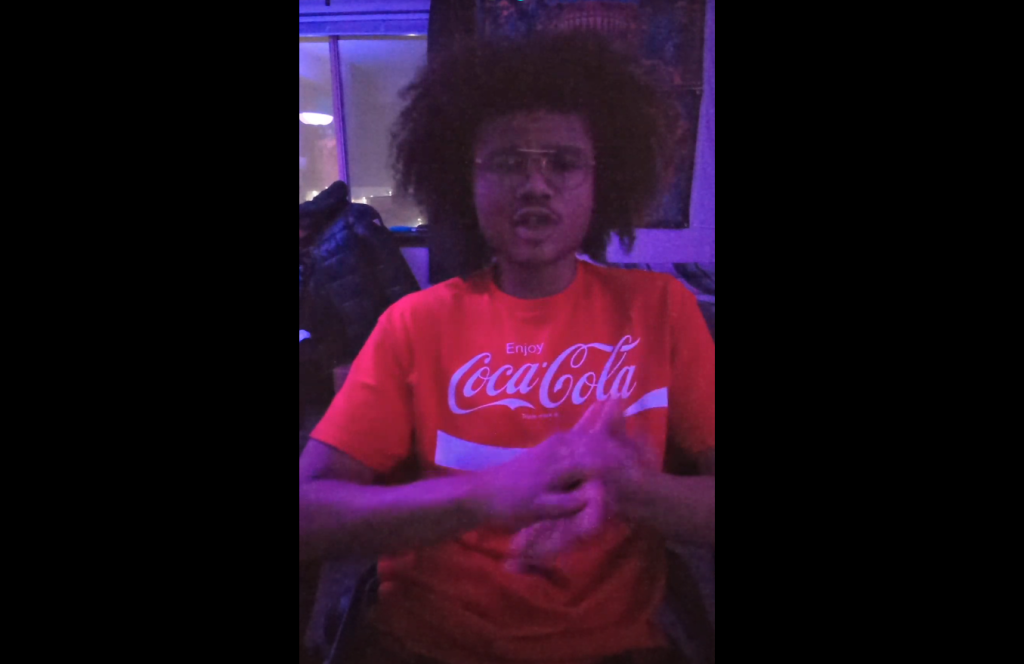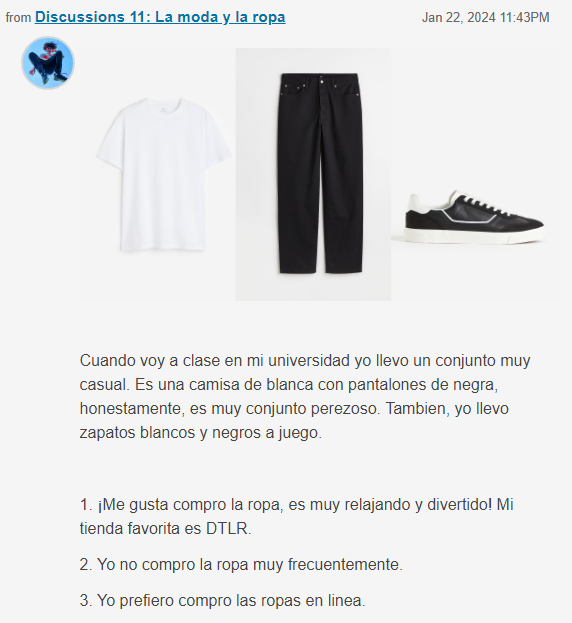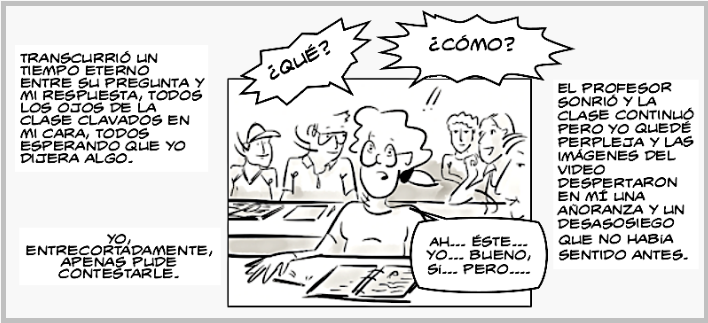Exploring Culture
My semester in Spanish 201 was full of unexpected learning and comprehension that I previously hadn’t obtained. I gained a deeper understanding of the Spanish language than ever before. Things that were difficult in the previous semester were suddenly becoming natural to me. I further connected with the language and the culture became much more familiar to me.
I did much of this cultural exploration through our class’s designated assignment portal: LingroLearning. On the website, I got many secular insights about the culture in Spanish speaking countries around the world. For instance, pictured below is an activity from LingroLearning. It is about the immigration statistics in their respective countries. This was a topic that was thoroughly explored throughout the semester. It helped me see the difference in life for immigrants living in other countries.

A screenshot from one of the cultural exploration lessons about immigration in unit 6 of LingroLearning.
Engaging in Communities
I believe that participating and engaging in your surrounding community is a good way to learn about your fellow locals. Although, this does not just stop at the local level, it can go much further beyond. This semester I learned about ecotourism and the multitude of benefits that come from it. It can help support a struggling countries economy through tourism, while at the same time providing you with seeing many of the beauties of the world.
Unfortunately, I have not had the chance to indulge in ecotourism or engage in my community at the moment but it is something that I look forward to doing in the future!
Interpersonal Communication
My experience with TalkAbroad this semester was extremely different than that of mine last semester. This time around I was much more equipped and confident in my speaking abilities. Previously, I had felt that I was simply faking my way through the entire conversation. I could not keep up with most of the words they used and also the speed at which they spoke those words.
My two conversations yielded very different results this time though. On my second (and somewhat my first) TalkAbroad session this semester I felt that I was able to understand a majority of my partners speech. I was also much more capable of improvising and thinking of words on the fly. If I did not know what a particular word meant I was able to figure out its meaning by using the context of it’s surrounding words (providing I knew what those words meant.) I feel that my experience with this activity made me much more comfortable with actually utilizing the Spanish skills I’ve accrued outside of a purely educational manner.
Click this text to listen to my second TalkAbroad conversation.
Presentational Speaking
During unit 12 of LingroLearning: ¿Cómo era ese lugar?, our class had to create a project that fell into the category of presentational speaking. It consisted of formulating a video about the aforementioned topic of ecotourism. We had to discuss what place, real or imaginary, we would choose to visit for an ecotourism venture.
I found this project to be quite difficult and tedious due to my lack of efficiency in on-the-spot thinking. Since the video had to be continuous (no cuts or edits), I had to constantly be on my toes when speaking. I was very unexperienced with speaking at-length for this extended period of time so I found this assignment to be quite the challenge. In totality, it probably took me about twenty attempts until I got the right take.

A screenshot from my presentational speaking project from unit 12 in Lingro Learning.
Presentational Writing
This semester our class did a number of presentational writing assignments, mainly through discussion boards and unit projects. These consisted of writing and discussing fashion sense, tourism, immigration and evaluating/creating text messages.
This kind of activity allowed me to test out my writing skills in a fashion that’s not completely meant to only be seen by me. It forced me to write “outwardly” and present my intentions in a much more obvious way. I believe that they were not the most difficult of the assignments but they definitely yielded some of the most effective results.

A screenshot of a discussion board in which we had to talk about our shopping preferences.
Interpretive Listening
LingroLearning contains a multitude of interpretive listening assignments within each module of the course. These assignments typically consisted of listening to a minute (to a minute and a half) worth of spoken audio by a native Spanish speaker.
To me, these activities were much more thought-provoking and difficult due to the speakers talking at a very fast pace. Therefore, I had to keep up with the speed of the words and interpret the dialogues’ intentions extremely quickly. I found this to be extremely hard to do in many cases and I would consider these assignments to be a weakness of mine.

A screenshot of a listening lesson in LingroLearning from unit 16.
Interpretive Reading
There were many assignments that required us to read a text and figure out it’s meaning solely from the words itself (with no outside hints or help). Activites of this nature made me think critically and evaluate the text from a much more analytical point of view.
I thought they were not necessarily difficult but they were necessary to gain experience with reading real-world spanish text thats not only in an academic context. I found these assignments to be quite helpful to my understanding of realistic Spanish usage as a whole.

A picture of a comic strip that we had to analyze in unit 13 of LingroLearning.